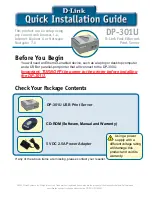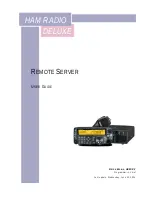
When defining Fault Sets, we refer to the term fault units, where a fault unit can be
either a Fault Set, or an SDS not associated with a Fault Set (you may think of it as a
Fault Set of a single SDS).
There must be enough capacity within at least three fault units to enable mirroring.
If Fault Sets are defined, you can use any combination of fault units, for example:
l
SDS1, SDS2, SDS3
l
FS1, SDS1, SDS2
l
FS1, FS2, SDS1
l
FS1, FS2, FS3
Figure 3 Protection Domains, Storage Pools, and Fault Sets
To use Fault Sets, you must work in the following order:
1. Ensure that a Protection Domain exists, or add a new one.
2. Ensure that a Storage Pool and Fault Sets (minimum of three fault units) exist, or
add new ones.
3. Add the SDS, designating the Protection Domain and Fault Set, and at the same
time, adding the SDS devices into a Storage Pool.
The automated deployment and installation tools follow this order automatically.
You can only create and configure Fault Sets before adding SDSs to the system,
and configuring them incorrectly may prevent the creation of volumes. An SDS
can only be added to a Fault Set during the creation of the SDS.
You define Fault Sets and add SDSs to them during installation, using the following
management tools:
l
Deployment wizard
You can also add Fault Sets when adding SDS nodes after initial installation.
Data layout
VxFlex OS offers a space efficient store layout with Fine Granularity (FG)
With FG, since space allocation occurs at 4KB, the data stored on the disk is
significantly reduced. Space allocation for Medium Granularity (MG) occurs at 1MB.
For FG, you must have NVDIMM configured as a DAX device. After NVDIMM is all set
up in your environment, you need to configure an NVDIMM Acceleration Pool (for
more information on Acceleration Pool, see "Acceleration Pools") and then you can
Architecture
32
Dell EMC VxFlex Ready Node AMS User Guide
Summary of Contents for EMC VxFlex Ready Node
Page 1: ...Dell EMC VxFlex Ready Node Version 3 x AMS User Guide P N 302 005 733 REV 02 June 2019 ...
Page 10: ...Contents 10 Dell EMC VxFlex Ready Node AMS User Guide ...
Page 12: ...Figures 12 Dell EMC VxFlex Ready Node AMS User Guide ...
Page 14: ...Tables 14 Dell EMC VxFlex Ready Node AMS User Guide ...
Page 18: ...Introduction 18 Dell EMC VxFlex Ready Node AMS User Guide ...
Page 24: ...Introduction to VxFlex Ready Node 24 Dell EMC VxFlex Ready Node AMS User Guide ...
Page 80: ...Architecture 80 Dell EMC VxFlex Ready Node AMS User Guide ...
Page 110: ...VxFlex OS Performance Fine Tuning 110 Dell EMC VxFlex Ready Node AMS User Guide ...
Page 130: ...Managing and Monitoring 130 Dell EMC VxFlex Ready Node AMS User Guide ...
Page 156: ...Managing System Objects 156 Dell EMC VxFlex Ready Node AMS User Guide ...
Page 182: ...Security Management 182 Dell EMC VxFlex Ready Node AMS User Guide ...
Page 188: ...Monitoring the System using the VxFlex OS GUI 188 Dell EMC VxFlex Ready Node AMS User Guide ...
Page 252: ...Reference 252 Dell EMC VxFlex Ready Node AMS User Guide ...
Page 274: ...Common Tasks 274 Dell EMC VxFlex Ready Node AMS User Guide ...
Page 292: ...System events 292 Dell EMC VxFlex Ready Node AMS User Guide ...
Page 324: ...SNMP Trap Support 324 Dell EMC VxFlex Ready Node AMS User Guide ...
Page 348: ...DTK Hardware Update Bootable ISO 348 Dell EMC VxFlex Ready Node AMS User Guide ...
Page 354: ...Glossary 354 Dell EMC VxFlex Ready Node AMS User Guide ...
















































